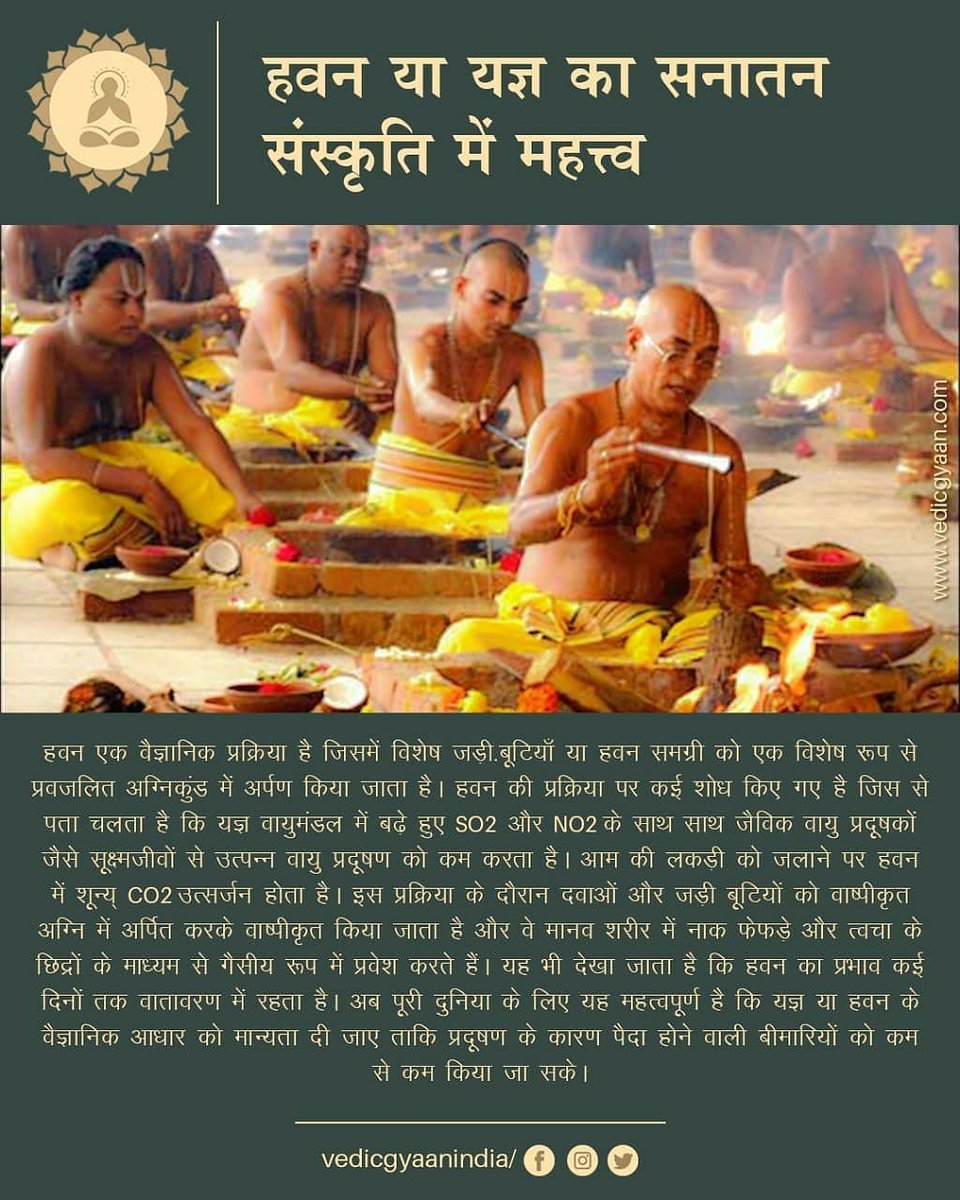
Hawan is a scientific process in which special herbs (Hawan Samagri) are offered in the fire of medicinal woods ignited in a specially designed fire pit called agnikuñda. Many research had been conducted on the process of Hawan and evidence suggested that Yagya reduces 



air pollution generated by increased SO2 and NO2 levels in the atmosphere, along with biological air pollutants such as microorganisms.
In Havan on burning of mango wood, there is zero CO emission. During the process, Medicines and herbs are vaporized by offering them into the
In Havan on burning of mango wood, there is zero CO emission. During the process, Medicines and herbs are vaporized by offering them into the
sacrificial fire, and they enter the human body in a gaseous form through the nose, lungs, and pores of the skin.
It is also seen that the effect of Hawan remains in the atmosphere for days after it has been performed. It is important now for the whole world to recognize the
It is also seen that the effect of Hawan remains in the atmosphere for days after it has been performed. It is important now for the whole world to recognize the
scientific basis of Yagya or Hawan so that diseases which are produced due to pollution can be minimized.
Read more on: vedicgyaan.com
• • •
Missing some Tweet in this thread? You can try to
force a refresh












